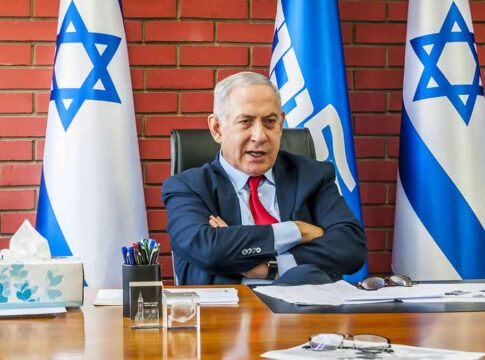A desperate diplomatic mission to Gaza reveals the stark reality that even America’s closest allies can’t always agree on what constitutes a humanitarian catastrophe.
The Mission Behind Closed Doors
Steve Witkoff stepped off the plane in Tel Aviv on July 31, 2025, carrying more than diplomatic credentials. The White House’s special envoy to the Middle East arrived with a stark mandate: salvage what remains of Gaza ceasefire talks while confronting a humanitarian crisis that has exposed uncomfortable divisions between Washington and Jerusalem. His companion, U.S. Ambassador Mike Huckabee, represents the administration’s commitment to maintaining the U.S.-Israel relationship while pushing for unprecedented access to Gaza’s aid distribution networks.
The timing couldn’t be more critical. Just one week earlier, both Israeli and American negotiation teams withdrew from Qatar, signaling the collapse of months of painstaking diplomatic efforts. Yet Witkoff’s mission suggests the administration believes direct intervention can succeed where traditional mediation has failed. His scheduled Friday visit to Gaza marks the first high-level American inspection of aid sites since the current crisis began.
When Allies Disagree on Basic Facts
The most revealing aspect of this diplomatic intervention isn’t what’s being negotiated, but what’s being acknowledged. President Trump has publicly recognized “real starvation” in Gaza, a stark departure from Prime Minister Netanyahu’s consistent denial of famine conditions. This disagreement represents more than diplomatic nuance; it signals a fundamental rift in how America’s most steadfast Middle Eastern ally views the humanitarian obligations that come with military operations.
International organizations haven’t minced words about the situation on the ground. Reports of Palestinians dying while waiting for food deliveries paint a grim picture that transcends political calculations. The United Nations and relief agencies have repeatedly warned of imminent famine, creating an uncomfortable backdrop for any leader who downplays the crisis. Trump’s acknowledgment of starvation suggests his administration won’t ignore these warnings, even when doing so might complicate relations with Netanyahu.
The Stakes Beyond Humanitarian Relief
Witkoff’s Gaza visit represents more than aid assessment; it’s a test of American diplomatic credibility in a region where influence increasingly depends on results rather than rhetoric. The envoy’s ability to secure meaningful increases in food and medical supplies will determine whether the United States can still broker solutions to intractable Middle Eastern crises. Failure could signal America’s diminished capacity to shape events even among its closest partners.
The broader implications extend to regional stability and America’s role as a mediator. Hamas continues to control Gaza while holding Israeli hostages, creating a complex dynamic where humanitarian aid becomes entangled with security negotiations and prisoner exchanges. Witkoff must navigate these competing pressures while delivering tangible improvements to a population facing acute malnutrition and infrastructure collapse. The outcome will likely influence how other regional conflicts unfold and whether American diplomacy retains its effectiveness in an increasingly multipolar world.
Sources:
White House envoy Witkoff lands in Tel Aviv for Israeli meetings ahead of Gaza visit
Trump’s Gaza envoy heads to region as famine warnings mount
Trump Middle East envoy Steve Witkoff visits Israel to discuss Gaza aid
Trump’s special envoy to the Middle East makes his first trip to Israel since May


